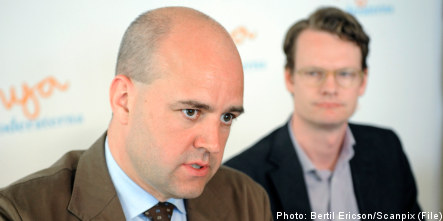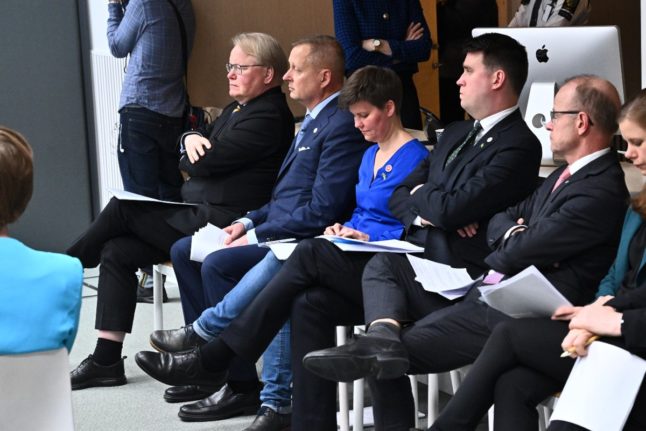Even the far-right Sweden Democrats appear to be benefiting from the crisis.
Compared to last month, support for the Moderates is up 4.3 percent to 28.4 percent, according to a new poll carried out by the Demoskop polling firm, the results of which are published in the Expressen newspaper.
Moderate Party Secretary Per Schlingman thinks the current economic crisis helps explain his party’s improved poll numbers.
“A lot of it stems from us seeing a shift in the debate in Sweden, which has been caused by an increase in economic uncertainty. We know that the voters have more confidence in the Moderates when it comes to managing the economy and employment,” he said to the newspaper.
At the same time, voter support for the remaining parties of the centre-right governing Alliance hasn’t kept pace.
Liberal Party (Folkpartiet) support dropped 3.2 percent down to 4.9 percent, while both the Centre Party and Christian Democrats stayed at around 4.5 percent and 3.2 percent, respectively.
While the opposition parties all lost support, they still have a combined 12.9 percent lead over the governing Alliance parties overall.
Support for the Social Democrats fell by 0.7 percent, bringing the party to 44.9 percent, while the Left Party lost 1.9 percent to land at 4.3 percent.
The Green Party also shed 0.8 percent, resulting in a 4.8 percent share of voter support.
Support for the Sweden Democrats jumped considerably, however, up 2.4 percent compared to figures from the previous month.
According to the Demoskop results, the party has sufficient support to qualify for a spot in the Riksdag, tallying a total of 4.5 percent of voter support.



 Please whitelist us to continue reading.
Please whitelist us to continue reading.